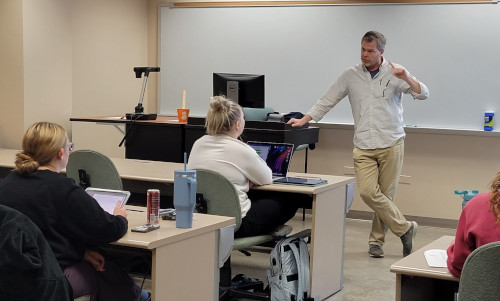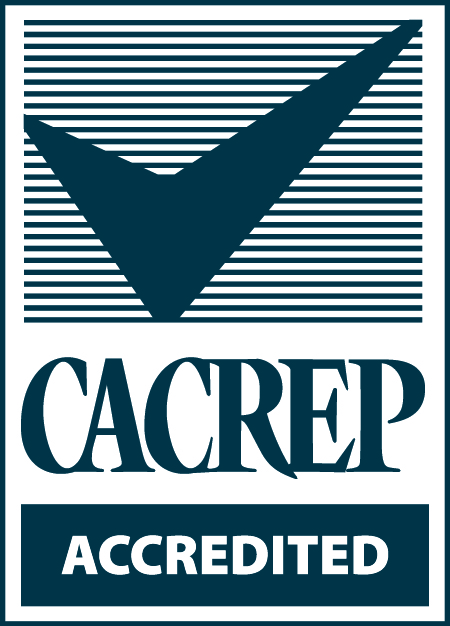School Counseling, MS
Who We Are
The Department of Counseling and Human Services (CHS) is a rigorous and inclusive learning community. We seek to prepare counseling and human service professionals who are resilient caregivers, intentional advocates, and committed, self-reflective individuals. Using an innovative, responsive curriculum, CHS programs prepare dynamic practitioners who are responsive to local, regional, and global needs. Emphasis is placed on a relationship-centered approach that fosters holistic personal and professional growth and success.
Program Overview

The school counseling master's degree prepares students for successful careers as professional school counselors in elementary, middle, and secondary schools. Our graduates also go on to work in district supervisory and administrative positions, higher education, career development, clinical mental health counseling settings, and counselor education.
What Is a Professional School Counselor?
School counselors design and deliver school counseling programs that improve student outcomes. They lead, advocate and collaborate to promote equity and access for all students by connecting their school counseling program to the school’s academic mission and school improvement plan.
They uphold the ethical standards of the American School Counselor Association (ASCA) and promote the development of comprehensive school counseling programs based on the following areas of the ASCA National Model: define, deliver, manage and assess.
School Counselor vs. Guidance Counselor
Historically, the term “guidance counselor” was used to refer to counselors working in schools. This term has evolved to “school counselor” as the scope of duties has changed and the profession has matured. Although some schools still use the “guidance counselor” term, the American School Counselor Association encourages the use of “school counselor ” to more accurately reflect more comprehensive roles, responsibilities, knowledge and expertise.
Why Choose Scranton?
- Evening courses allow students to work in the field as they complete their degree. In-person classes provide opportunities to step away from life's distractions to focus solely on learning.
- Our unique, one-of-a-kind David W. Hall Counselor Training Center provides students with state-of-the-art video-capture technology for recording counseling sessions and receiving hands-on clinical supervision from our highly qualified full-time faculty.
- All courses are taught by accomplished professors, instructors and scholars, many of whom are currently engaged in active research and scholarly work. Our faculty have leadership experiences at state and national levels.
- The University is rooted in Jesuit values like cura personalis (care of the whole person). For more information, read our "Counseling and Human Services Perspective on Jesuit Education" (new tab).
- We are accredited by the Council for Accreditation of Counseling and Related Educational Programs (CACREP) through October 2031, and are the second oldest nationally-accredited school counseling program in Pennsylvania. Learn about the importance of accreditation from the CACREP website (new tab).
- Our 60-credit master’s degree program opens doors to additional professional career opportunities including pathways to licensure in Pennsylvania as a Licensed Professional Counselor (LPC).
- We offer full and part-time degree options to address the different lifestyle and learning needs of our students.
- Our small class sizes and low faculty-to-student ratio enables us to provide an engaging, robust, inclusive, highly collaborative and vibrant learning environment.
- A combination of specialized school counseling coursework paired with foundational classes where you will sit side by side with our Clinical Mental Health Counseling and Clinical Rehabilitation Counseling students maximizes your prospects to develop into a well-developed and well-rounded professional.








